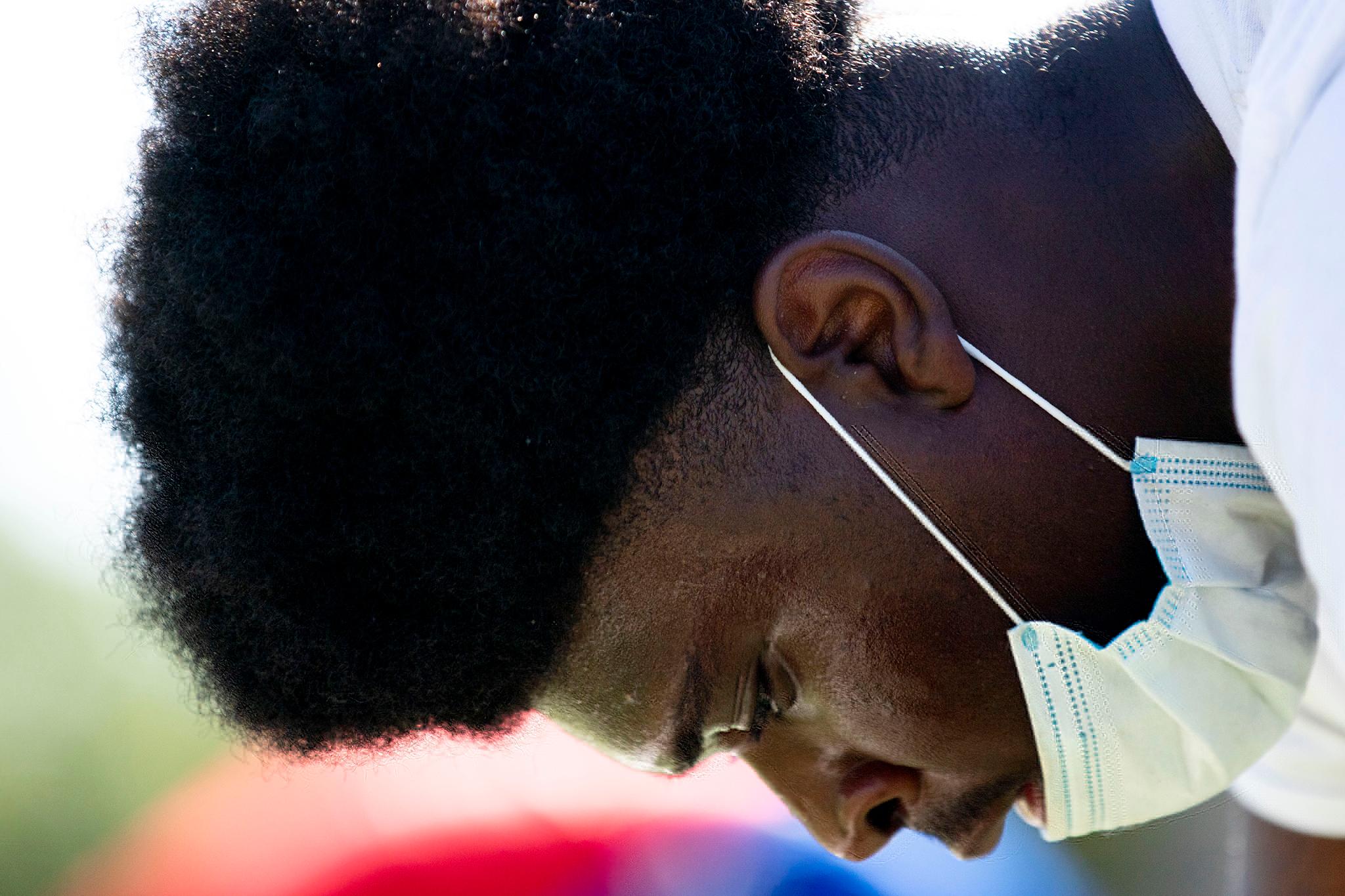
Coronavirus cases are down, optimism is up and high school athletes finally have schedules.
At a press conference Tuesday, Colorado Gov. Jared Polis noted a drop in the number of cases and in the percentage of positive COVID-19 tests.
The credit, he said, goes to residents who expanded face mask use and a recent statewide order requiring bars and clubs to move last call for alcohol to 10 p.m.
The state is now doing well enough that high school sports schedules, albeit significantly altered and disrupted, were released.
Football, and some other fall sports, will move competition to the spring, with practice in February and games starting in March.
“We all want youth sports to occur and it's figuring out how to, how we can fit them all in,” the governor said. “It's not going to look like any other season.”
The 2020-21 high school sports season will be played with a modified sport schedule that includes four separate competition seasons concluding in June, according to the Colorado High School Activities Association. The organization announced the new schedule Tuesday.
The global pandemic disabled high school sports five months ago.
“I feel like we have more flexibility within a seven-month calendar to give our kids an opportunity,” CHSAA commissioner Rhonda Blanford-Green said. "The health and safety of our student participants, coaches, officials and essential personnel, including volunteers is a primary concern for the return of interscholastic athletics and activities.”
All contact sports like football and soccer have been moved to late winter and spring, still allowing for time for playoffs and championships.
Football was of particular interest to students and fans, and was in jeopardy simply because of the nature of the sport in which players are in close proximity on every play.
The chance to have a season at all was likely driven by an improvement in Colorado’s caseload in the past two weeks, avoiding the kind of spikes happening in Sun Belt states.
The state’s positivity rate, the number of positive results of those who have been tested for the virus crested above 25 percent in mid-April. That indicated high levels of community transmission.
The figure dropped below 2.5 percent in mid-June, but climbed back up above 5 percent, a worrisome level, in mid-July, after the Fourth of July holiday. It dropped below that the last couple of weeks and now remains below that danger level.
“We’re doing better as a state,” Polis said.
He said Colorado was “beginning to see a leveling off of that very alarming increase,” from a few weeks back. The governor said he was glad virus cases weren’t spiking sharply, and hoped they’d go on to drop.
“Hospitalizations are slightly down in the last week,” he said.
Colorado has around 200 people with coronavirus hospitalized.
Polis said most people are following proper precautions, like staying distanced socially, wearing masks and avoiding large crowds.
“Just because we are plateauing doesn't mean we're still not in a very precarious position," Polis said. "It's like a boulder sitting on top of a hill, one wrong move, and it could go into a rockslide, off the end.”
The governor said a variety of organized sports, like baseball and soccer, were played over the summer across the state and it was “done safely.”
CHSAA said some fall sports will begin as originally scheduled: boys golf, softball, boys' tennis and cross country on Aug. 12.
The other traditional fall sports are “unable to be played under current state health guidelines.” Those include field hockey, football, gymnastics, boys soccer, spirit, unified bowling and girls volleyball. Many will be pushed to spring, making for a busy season as other spring sports, like girls soccer and track and field, are also expected to be competing then.
The state expects a “likely resurgence of COVID-19 cases in late fall,” CHSAA said on its website, so there will be no sports from mid-October through early January 2021.
The traditional winter sports would begin then, including basketball, ice hockey, skiing, spirit, girls swimming and wrestling.
Still, CHSAA warned all the fresh plans are “subject to change based upon any changes to national, state or local guidelines” related to COVID-19.
Polis issued a similar warning.
“Obviously if there's a coronavirus outbreak on a team or at a school, there will be scheduling changes,” Polis said. “There will be games missed.”
He noted that to be safe some sports might happen “maybe not with all the fans.”
It remains to be seen what effect moving fall sports to spring will have on college recruiting of senior athletes. Most NCAA football conferences are moving forward with slightly altered fall schedules. But all are doing so tentatively and everything could change, including the recruiting calendar.
Soccer, volleyball and other sports are also moving forward at the collegiate level nationally, but tentatively, with different plans depending on conferences.
Polis also said the state is still seeing large gatherings, which are considered risky for high levels of transmission. He noted a recent concert event, which he called a “dangerous superspreader activity” in Weld County. Several thousand people assembled, prompting the Attorney General’s Office to issue a cease and desist letter regarding live entertainment.
The event drew a diverse crowd and Polis said he and his team were “redoubling” efforts on Spanish language outreach, including a town hall event he held after his normally scheduled press conference.
He said the state would also be getting Spanish-language health information out via Facebook and Twitter.
“We feel that these are important ways to reach our predominantly Spanish speaking community,” said the governor, who speaks Spanish.









